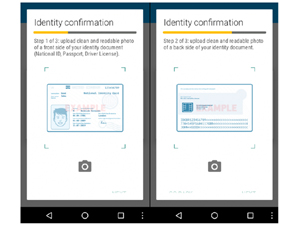



Date:11/02/16
 A new method for detecting infection in wounds could take physicians less than one minute to complete rather than the current 24 hours it takes to "plate" bacteria and leave them to incubate overnight, according to research from George Washington University’s School of Medicine & Health Sciences. The report was published in Wound Repair and Regeneration.
A new method for detecting infection in wounds could take physicians less than one minute to complete rather than the current 24 hours it takes to "plate" bacteria and leave them to incubate overnight, according to research from George Washington University’s School of Medicine & Health Sciences. The report was published in Wound Repair and Regeneration.
Victoria Shanmugam, MD, and her colleagues tested an inexpensive, disposable electrochemical sensor that immediately reveals the presence of bacteria in chronic wounds based on the detection of pyocyanin, a bacterial quorum-sensing molecule produced by Pseudomonas bacteria. The probe correctly identified the presence of bacteria 71% of the time and the absence of bacteria 57% of the time.
"Being able to detect Pseudomonas and other infectious organisms at the time of the clinic visit will greatly enhance our ability to take care of patients," Shanmugam said. "We would not have to wait for culture results before making a decision about antibiotics, and this would allow us to better tailor therapies for our patients."
After further enhancement and testing, probes harnessing this method could potentially provide a way for physicians to detect wound infections at bedside, allowing physicians to switch from broad-spectrum antibiotics to specific directed therapies sooner, thereby lowering health care costs, minimizing drug resistance, and improving patient care outcomes, according to Shanmugam.
"Infections are a major challenge in medicine, and by using this probe, we were able to harness one of the unique molecules produced by bacteria to detect infection," she said. "We plan to continue to refine this testing method and hope to scale it up for detection of other bacteria and to optimize it for clinical use."
Researchers offered new method for rapid detection of infection in wounds
 A new method for detecting infection in wounds could take physicians less than one minute to complete rather than the current 24 hours it takes to "plate" bacteria and leave them to incubate overnight, according to research from George Washington University’s School of Medicine & Health Sciences. The report was published in Wound Repair and Regeneration.
A new method for detecting infection in wounds could take physicians less than one minute to complete rather than the current 24 hours it takes to "plate" bacteria and leave them to incubate overnight, according to research from George Washington University’s School of Medicine & Health Sciences. The report was published in Wound Repair and Regeneration.Victoria Shanmugam, MD, and her colleagues tested an inexpensive, disposable electrochemical sensor that immediately reveals the presence of bacteria in chronic wounds based on the detection of pyocyanin, a bacterial quorum-sensing molecule produced by Pseudomonas bacteria. The probe correctly identified the presence of bacteria 71% of the time and the absence of bacteria 57% of the time.
"Being able to detect Pseudomonas and other infectious organisms at the time of the clinic visit will greatly enhance our ability to take care of patients," Shanmugam said. "We would not have to wait for culture results before making a decision about antibiotics, and this would allow us to better tailor therapies for our patients."
After further enhancement and testing, probes harnessing this method could potentially provide a way for physicians to detect wound infections at bedside, allowing physicians to switch from broad-spectrum antibiotics to specific directed therapies sooner, thereby lowering health care costs, minimizing drug resistance, and improving patient care outcomes, according to Shanmugam.
"Infections are a major challenge in medicine, and by using this probe, we were able to harness one of the unique molecules produced by bacteria to detect infection," she said. "We plan to continue to refine this testing method and hope to scale it up for detection of other bacteria and to optimize it for clinical use."
Views: 486
©ictnews.az. All rights reserved.Similar news
- Azerbaijani project to monitor disease via mobile phones
- Innovative educational system to be improved under presidential decree
- NTRC prolongs license of two TV and radio organizations for 6 years
- Azerbaijan establishes e-registry for medicines
- Azerbaijani museum introduces e-guide
- Nar Mobile opens “Nar Dunyasi” sales and service center in Siyazan city
- International conference on custom electronic services held in Baku
- OIC secretary general to attend COMSTECH meeting in Baku
- Azerbaijan develops earthquake warning system
- New law to regulate transition to digital broadcasting in Azerbaijan
- Azerbaijani State Social Protection Fund introduces electronic digital signature
- Intellectual traffic management system in Baku to be commissioned in December
- Tax Ministry of Azerbaijan started receiving video-addresses
- World Bank recommends Azerbaijan to speed up e-service introduction in real estate
- Azerbaijan to shift to electronic registration of real estate





















